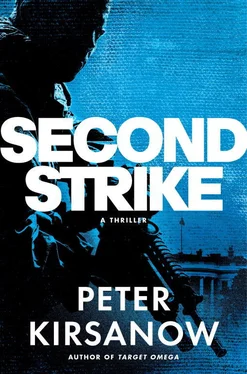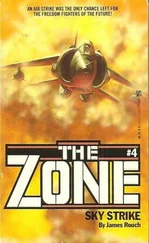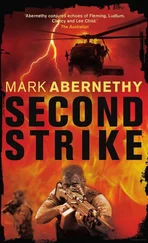There was a voice. He didn’t understand what it was saying. Whatever it was saying was barely a sentence long. Its tone was declarative.
The voice spoke again. This time it’s tone was imperative. After a pause, he felt a sting on the right side of his face. He had been struck by something. His thinking became sharper, on the cusp of lucidity. His face was stung by something again. He identified it as skin, the palm of a hand.
He heard the voice again. A declarative sentence followed by an imperative sentence. Then there was a different voice followed by footsteps. Yes, footsteps. He was able to discern the sound. The footsteps faded and then there was another loud noise like the first one he’d heard. A heavy object striking an immovable object.
He became aware of his hands clenching. His knuckles hurt. He’d felt that type of pain before. He’d recently struck someone.
His hands now were obeying his commands. His legs too. His legs strained against restraints that were, in fact, tied around his ankles. He was tied to a chair. The armrests were metal, not cushioned. They felt wide and thick and substantial.
He could hear himself breathe. Shallow and ragged. He’d been hurt. He was beginning to feel anxious, no longer detached.
Yet another declarative sentence. Then a question followed by a slap to the face. And another. And another.
He could hear the echo of the slaps in the room and almost immediately the fog dissipated and his brain went from addled to alert. His eyes began to adjust rapidly. The shadows turned into identifiable objects. A cinder-block wall, a thick metal door, a heavy metal table, a metal toolbox on top of the table, a concrete floor, cardboard boxes stacked to his left, and a heavy metal chair right in front of him, no more than three feet away.
All of the things in the room, even the cardboard boxes, were gunmetal gray except one. Seated on the chair three feet away was a man in his fifties with rheumy, bloodshot eyes, a scar running from the left side of his mouth to his ear, and a knotted scalp covered with tufts of white hair. He was one of the most grotesque-looking men Mike Garin had ever seen.
And he was smiling.
WHITE HOUSE,
AUGUST 17, 9:58 A.M. EDT
“Russians.”
President John Allen Marshall shook his head, the tone of his voice a mixture of exasperation and frustration. He suspected he’d said the word just as FDR had after learning of the Molotov-Ribbentrop Pact, JFK had after learning the Soviets were moving ballistic missiles into Cuba, and Reagan had after learning the Soviets had shot down Korean Air Lines Flight 007.
Marshall rapped his knuckles on the Resolute desk in the Oval Office. It occurred to him he’d used a similar tone just a few weeks ago upon learning of the EMP plot, although at that time his voice was infused with more alarm.
Marshall had confronted Mikhailov and threatened to form a nearly worldwide coalition to impose crippling sanctions on the Russian government for its involvement in the plot. Mikhailov conceded that some Russians were involved in the matter but that such involvement was not sanctioned by the Russian government. It was true, Mikhailov said, that a Russian physicist named Dmitri Chernin had provided technical assistance to the Iranian nuclear weapons and ballistic missile programs, but Chernin was acting without the Russian government’s knowledge, let alone approval. Indeed, upon learning of Chernin’s role, the SVR had immediately located and assassinated the physicist—going so far as to provide photos of the corpse to CIA deputy director John Kessler as proof. An act of penance.
Marshall wasn’t wholly convinced by Mikhailov’s explanations, but he was hamstrung by the reluctance of most Western nations to take any action more punitive than mild to moderate sanctions. The French pointed out—correctly—that it was the North Koreans who had provided hundreds of scientists and technicians to help Iran build a crude nuke and improve the range of its Shahab missiles so it could strike the continental United States. Germany, embarrassed that some of the advanced equipment used by the Iranians had been obtained from German manufacturers, noted that there were few, if any, Russian fingerprints on either the Iranian nuke program or the EMP plot. Indeed, most of the G8 powers argued that if anything, sanctions should be imposed on North Korea, not Russia.
It was mere coincidence that most of the G8 powers depended on Russia for natural gas and other critical resources but were dependent on the hermit kingdom for absolutely nothing.
Marshall wasn’t persuaded of Russian innocence, but the Russians had plausible deniability. Mikhailov shrewdly preempted stiff sanctions by boosting Gazprom’s sales of natural gas to Europe by thirty billion cubic meters and lowering the price of such gas by a full ten percent. That, combined with the lack of stomach among Western powers for any form of confrontation, resulted in the geopolitical equivalent of a slap on the wrist.
To be fair, the Russians did nothing militarily, economically, or diplomatically to distract from or impede the bombing campaign against Iran. Mikhailov even allowed Allied aircraft to coordinate logistics and stage some bombing runs using the Mozdok Air Base in North Ossetia.
Still, Marshall believed there was more to Russian involvement in the EMP plot than met the eye, and he remained wary of Mikhailov and his ambitions.
James Brandt had just informed Marshall that the Russians were moving troops and matériel, movements that were baffling, prompting Marshall’s exasperation.
“Whatever they’re doing, they’re up to no good, Jim. That’s a constant. What’s your take?”
“I’m a bit mystified, Mr. President.”
“This wasn’t in the President’s Daily Brief. When was this discovered and by whom?”
“It wasn’t anyone in the intelligence community, per se. My assistant, Ms. Perry, happened upon it and alerted me.”
“I might just get rid of you and make her national security advisor. All the good stuff comes from her. Come to think of it, the increased Russian naval presence in the Persian Gulf was noted in the PDB a couple of days ago. But no correlation was made with the troop movements in southern Russia. Or the activity around the Baltics. Or the industrial sites.”
“Ms. Perry agrees with you that the Russians are up to no good.”
“She gets that from you, Jim. It’s practically your mantra.”
“I’m not sure I agree in this case. There’s nothing especially unusual in these movements. Plus, they’ve been on their best behavior since the Iranian EMP affair and it’s been barely a month since then.”
“Movements around the Caspian are strange.”
“Not really. They’ve conducted exercises nearby in the past, particularly when they’ve had issues with the likes of the Chechens.”
“Then why bring this to my attention?”
“To be honest, sir? Because Ms. Perry has been hectoring me.”
Marshall smiled.
“She insisted I tell you one more thing. Several attempts have been made on Mike Garin’s life in the last couple of days. She believes the Russians may have something to do with it.”
Brandt had Marshall’s attention. From the beginning of the EMP operation, Marshall had been intrigued by all things Garin. “Several attempts on Garin’s life? Seriously?”
“According to Ms. Perry.”
“What does Garin say?”
“He told Ms. Perry he thinks it’s that Russian operator from the EMP affair.”
Marshall leaned back in his chair. “What do you think?”
“Garin is not somebody who makes mistakes, and he doesn’t jump to conclusions.”
Читать дальше












